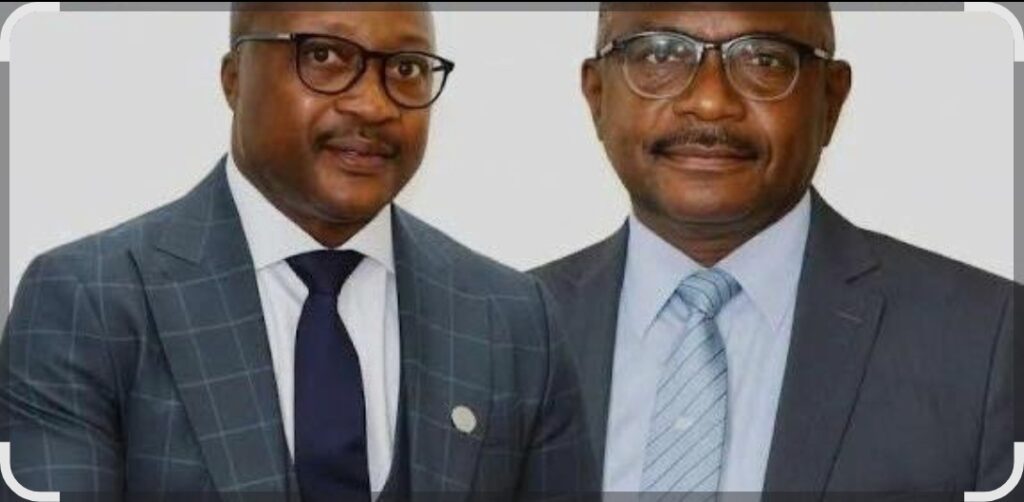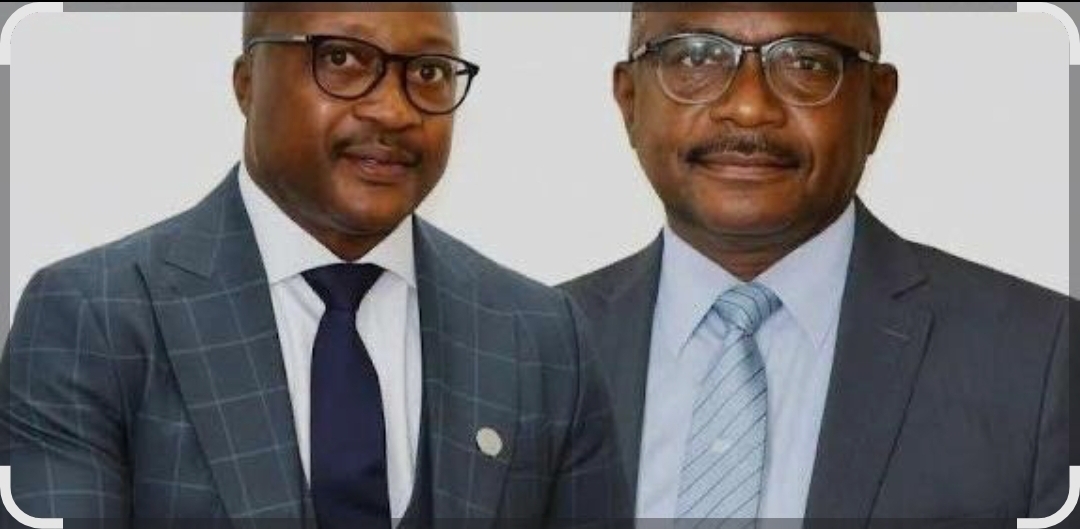
What Goes Around Comes Around
By Alpha Amadu Jalloh
In Sierra Leone, the very institutions meant to protect justice have become instruments of injustice. Those who enable the system today may be its victims tomorrow. The cycle is unstoppable unless the people demand accountability.
The saying what goes around comes around has never been more real than in Sierra Leone today. Our democracy groans under the weight of executive overreach, a Parliament that bends too easily, and a Judiciary too often complicit. The story of former Auditor General Mrs. Lara Taylor-Pearce and her deputy is a stark illustration. They were removed unjustly, silenced by the President’s overarching powers, powers that the constitution never intended him to wield.
This did not happen in isolation. Parliament and the Judiciary, the very institutions meant to provide checks and balances, failed in their duty. Instead of defending constitutional order, they became instruments of executive will. When Mrs. Taylor-Pearce was unlawfully removed, Parliament looked away. The Judiciary turned its back. And the legal community largely stayed silent. What was ignored yesterday is now returning to haunt the system today.
| “Those who enable injustice today may be its victims tomorrow. The cycle of selective justice spares no one.”
Take Justice Allan B. Halloway. He dared to challenge Chief Justice Komba Kamanda, exposing how the judiciary has been manipulated for the President’s interests. Yet instead of investigating the Chief Justice, Halloway alone was suspended. Why not hold the Chief Justice accountable and allow him to explain his role? Why single out Halloway when the system itself is rotten to the core?
Ironically, Justice Halloway once played a role in the same system he now criticizes. When Mrs. Taylor-Pearce was silenced, he was in sync with the machinery of injustice, allowing other Sierra Leoneans, known and unknown, to be denied justice. Now that he is affected, he cries wolf. Where are we now, Sierra Leone?
This cycle is dangerous. Today it is Justice Halloway. Yesterday it was Mrs. Taylor-Pearce. Tomorrow, it could be any public servant or judge who challenges power. The lesson is simple: justice must be applied evenly, or no one is safe, not even those who once benefited from the system.
Sierra Leone cannot progress under selective justice. Investors avoid countries where courts are puppets of the executive. Citizens lose trust in governments where Parliament rubber-stamps abuses and courts serve State House. When the Judiciary allowed Mrs. Taylor-Pearce’s removal, it was digging its own grave. Parliament’s silence signed its own death warrant. And the legal community’s indifference planted seeds of chaos. Today, those seeds bear bitter fruit.
The irony is stark. Justice Halloway, once aligned with injustice, is now a victim of it. The sword he helped sharpen is cutting him. Mrs. Taylor-Pearce is a symbol of the truth: injustice eventually returns to its enablers.
The suspension of Halloway, without equally investigating Chief Justice Kamanda, highlights hypocrisy. The Judiciary has become loyal to power, not to the law. The remedy is clear.
| “The Judiciary must be independent of the Executive. The President should have no involvement in judicial matters and should be monitored on behalf of the people.”
The consequences of executive overreach are not abstract. They are lived every day by ordinary citizens. Public servants who speak truth to power risk humiliation, removal, and silence. Institutions that should be impartial are compromised. Citizens watch helplessly as the rule of law becomes a tool of political expediency. This is the dangerous environment in which both Mrs. Taylor-Pearce and Justice Halloway found themselves.
Justice Halloway’s predicament underscores a deeper problem: complicity is temporary protection, not immunity. When the Auditor General was unlawfully removed, Halloway and others in the system turned a blind eye. They preserved their positions, thinking loyalty would shield them. Today, the machinery of injustice has turned. Now he is the one facing the consequences, proving that selective enforcement always boomerangs. What was once convenient for power is now inconvenient for him.
| “Silence in the face of unlawful acts is not neutrality. It is participation in the cycle of injustice that spares no one.”
The lessons are stark. No one is untouchable. Justice denied to some is justice denied to all. Silence in the face of unlawful acts is participation. And participation ensures that injustice will one day touch even those who thought themselves safe.
| “Justice denied to some is justice denied to all. Silence in the face of unlawful acts is participation in injustice.”
Sierra Leoneans must understand that the independence of institutions is not negotiable. Parliament cannot continue to be a rubber stamp. The Judiciary cannot continue to serve executive interests. The constitutional review presents an opportunity to correct these structural failures. It is a chance to ensure that the President cannot interfere with judicial matters and that the Judiciary truly acts as a check on the Executive, monitoring the President on behalf of the people. The lessons of Mrs. Taylor-Pearce and Justice Halloway must guide these reforms.
The Auditor General showed courage when many would have stayed silent. Justice Halloway’s current struggle exposes the fragility of a system built on expediency rather than principle. Both cases highlight a systemic problem: the abuse of power in a state that pretends to uphold the rule of law. Until Sierra Leone addresses this, the cycle of injustice will continue unabated.
What goes around comes around. The machinery that silenced Mrs. Taylor-Pearce is now exacting a toll on Justice Halloway. Those who once thought themselves beneficiaries of the system are learning that loyalty to power is no protection. Those who once enabled injustice now find themselves vulnerable to it.
Sierra Leoneans must act. Citizens, civil society, and those in positions of influence must demand accountability. Institutions must rediscover their independence. The Judiciary must enforce the rule of law impartially. Parliament must defend constitutional principles rather than political allegiances. And the constitutional review must include safeguards that prevent future executive overreach.
Without justice, there can be no peace. Without peace, there can be no progress. And without progress, Sierra Leone will remain trapped in cycles of betrayal and retribution, where the powerful manipulate systems for personal gain and ordinary citizens bear the cost.
The lessons are unavoidable and clear. Those who allow injustice today may be its victims tomorrow. The system that silences one person today may destroy the enabler tomorrow. Mrs. Taylor-Pearce and Justice Halloway embody this principle. One was silenced for upholding justice. The other, once complicit, now suffers when the system turns on him. What goes around comes around.
Sierra Leone must wake up. Until the people insist on independent institutions, equitable justice, and a president who is accountable to the law rather than controlling it, the cycles of injustice will continue. The time to act is now, to break the pattern, and to enshrine in law the independence of the Judiciary, the accountability of the Executive, and the protection of every citizen from arbitrary power.
And in that cycle, one truth will always remain: what goes around comes around.
